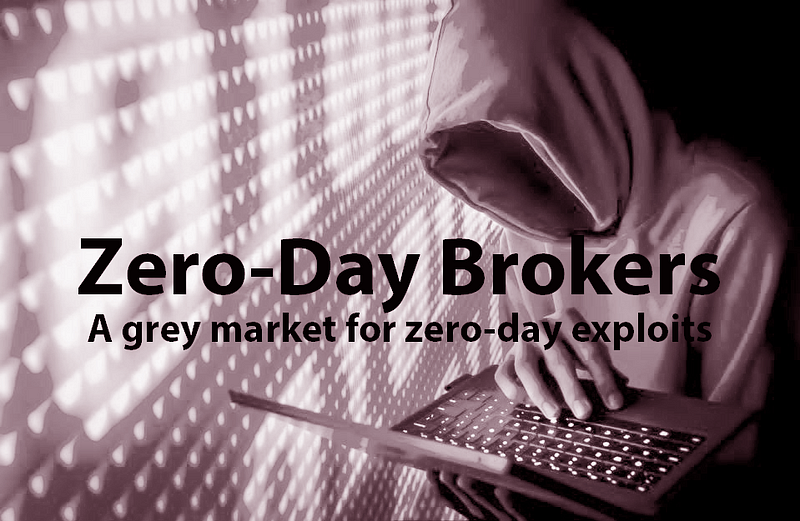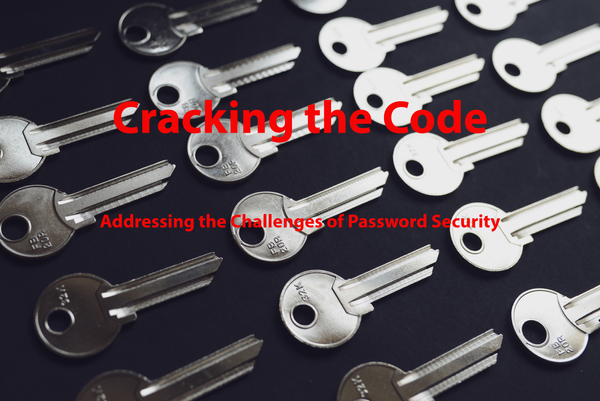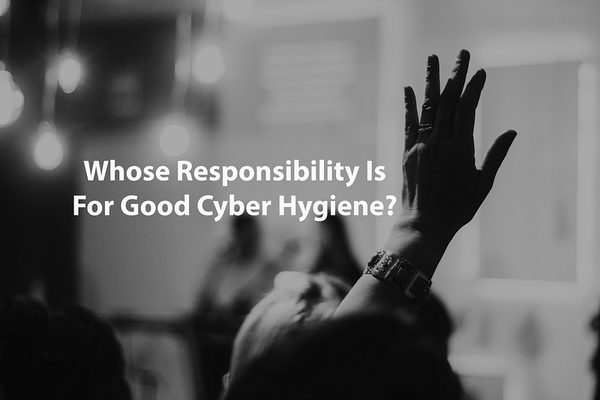The Zero-Day Brokers: A grey market for zero-day exploits
In the past, I have talked about zero-day vulnerabilities and the risks they pose. This post will focus on a grey market ecosystem, where…

Originally published at https://cyberbakery.net on November 20, 2021.
In the past, I have talked about zero-day vulnerabilities and the risks they pose. This post will focus on a grey market ecosystem, where zero-day exploits are bought and sold. To stay within the context, let me first define some key terms that will help us distinguish between the legality of this market.
Zero-day Vulnerability & Exploit
Zero-day vulnerabilities are flaws in system software or a device that has been disclosed but not yet patched by the creator. Because the creator of the software has not yet been discovered and patched, the zero-day vulnerabilities pose the high risk where a cybercriminal can take advantage for financial gain.
A zero-day exploit is software that takes advantage of these vulnerabilities. Merely creating an exploit and selling such software is not illegal. However, using such an exploit taking advantage for financial gain or causing harm is illegal.
Zero-day Brokers
Zero-brokers is the grey market ecosystem where zero-day exploits are bought and sold, often by governments secretly. Governments do this to ensure that no one else knows about these vulnerabilities, including the software creators. Since governments are involved, you guessed it right, there is a level of legitimacy to this market. The concept of good or bad is subjective and depends on which side of the table you are on.
The History of the “Market”
Like any other market, buying and selling zero-day exploits is the core of the business model. Therefore, the brokers (zero-day brokers market) have existed since the beginning of cyber warfare. As we were moving towards the Internet revolution, the data, famously called as “new oil” of this century. Zero-day exploits have become the most reliable way of exploiting vulnerabilities in the quest of seeking information. Some governments and private entities buy or sell these exploits to protect national interests and, in other cases, use these exploits to spy on the adversary. The market seems to be very small but very high value depending upon the exploit in question.
I came across a book from a New York Times cybersecurity and digital espionage journalist Nicole Perlroth; THIS IS HOW THEY TELL ME THE WORLD ENDS is an excellent account of the zero-day market. This well-researched book talks about the origins and the extent of this market. She notes in her accounts that it is hard to pinpoint the exact numbers that sell these exploits but even few that buy these exploits from these researchers. Even though the major buyers in this market are from law enforcement agencies worldwide, some private entities do indulge in buying.
The zero-day exploits market is predominantly for the valuable tools, which are to execute covert surgical operations. Recently, respective governments have tried to regulate the exploits market, but no matter what controls governments apply, we will always have a thriving black market selling zero-day exploits.
Nicole sites in her book the inability of Americans to protect against espionage attempts from Russia, China and North Korea, which prompted them to use zero-day exploits as a critical component of their response to the digital/cyber warfare. The Snowden leaks confirm that the US agencies were one of the biggest players in this market. Nicole shared a story of the two young hackers in the early days of this century who offered iDefense Research Lab, a threat intelligence company, a business model parallel to the blackhat hackers exploiting the vulnerabilities for-profit and cyber warfare. So, this was a kind of a model where whitehat hackers, with all their good intentions, were missing the buck due to the lack of acknowledgement of the creators. iDefense became the first company to buy bugs from these whitehat hackers to create a service that offers “threat intelligence” to companies such as banks that needed vulnerable business software and required protection against attacks. This kind of arrangement was the win-win proposition for the iDefense labs and the whitehat hackers.
In the early days, there was no market for iDefense. To develop this market, they started offering hackers monies for a laundry list of bugs, but at first, the bugs submitted were good for nothing. Even though they were thinking of letting the hackers go away, they needed to build trust. After 18 months or so, the hackers from Turkey, New Zealand and Argentina showed bugs that could exploit using antivirus, intercept passwords and steal data. As time passed, the program gained attention, and the company started getting calls from people in the government offering iDefense substantive amount of money in exchange for the bugs. The key to these discussions was not to inform the creators of the software of these vulnerabilities in exchange for the money. This opened up a whole new paradigm for these hackers, who would take a few hundred dollars a year earlier were asking for six-figure payouts. This created a whole new ecosystem of buyers and sellers known today as “zero-day brokers”.
The future of Zero-Day Brokers
As long as we will have software, we will have software vulnerabilities. Therefore, this ecosystem will persist. However, there could be some differences in the way the exploits are bought or sold. The value of these exploits could be different. The race, the cyber arm one, is becoming enormously competitive, and the governments worldwide are behaving so that there is no consequence of hacking an adversary country. It is becoming increasingly evident in the cybersecurity world that countries like the US, China, North Korea, Israel etc., are very much involved in cyber espionage and are finding new ways to stay ahead in the race. They will keep developing or buying exploits. Meanwhile, ordinary people will always be the last to know and the first ones impacted by a digital apocalypse. It sounds alarming, but what we are seeing in the cybersecurity world does not indicate anything but a potential digital catastrophe.




